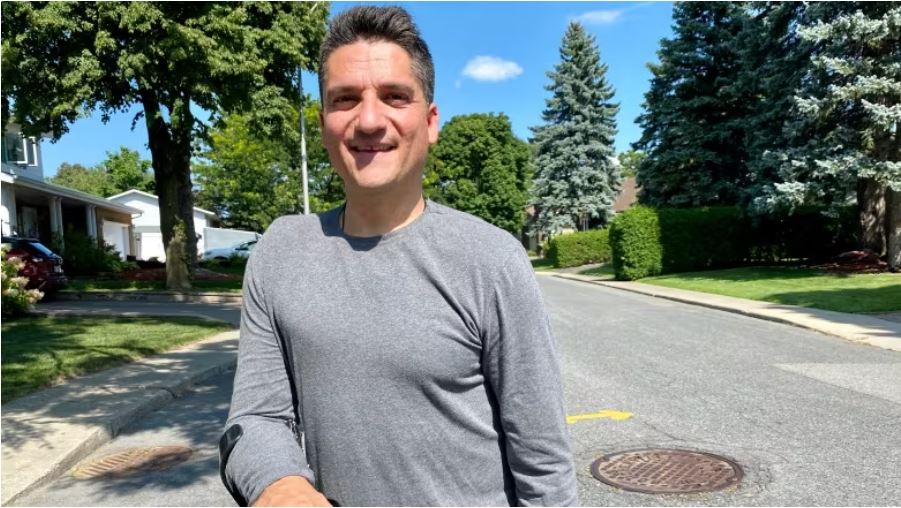Luca ‘Lazylegz’ Patuelli says elevator, escalator were out of order — and no staff knew what to do.
Luca Patuelli, a dancer known as Lazylegz, says he’s used to navigating a world that isn’t always designed with accessibility in mind.
Born with arthrogryposis, a muscle disorder that affects his legs and requires him to use crutches and a wheelchair, the world-renowned b-boy and motivational entertainer is known for his perseverance and his philosophy of “No Excuses. No Limits.”
But he says an especially frustrating experience Sunday evening at Montreal’s Trudeau Airport has prompted him to speak out.
On his way to the baggage area after touching down from Toronto with his family, Patuelli realized both the up escalator and the elevator were out of order.
The dancer, who was using his wheelchair at the time, says he didn’t know what to do. He approached an attendant who was pushing another person in a wheelchair to ask what the protocol was, but says he was shaken by his answer.
“His response was, ‘I’m not the elevator guy, I don’t know,'” he said.
Patuelli said he then found a phone and called security, who told him to sit tight and someone would come get him.
“We waited for approximately 30 minutes. There was absolutely no one,” he said.
Tired of waiting, he eventually climbed up the stairs on his crutches — which thankfully, he had with him, he said — as his wife and a flight attendant carried his wheelchair up for him.
Once upstairs, he filed an official complaint at the airport’s information desk.
“My complaint isn’t the fact that the elevator was broken or that the escalator was broken. It’s the fact that there was no employee at the airport that knew what to do in this type of situation — that there wasn’t a protocol put in place,” he said.
He said this isn’t only about people with physical disabilities, but also about elderly people who have difficulty going up stairs or single parents with cumbersome strollers.
Disabled people ‘not a priority’
Steven Laperrière, general manager of the Regroupement des activistes pour l’inclusion au Québec (RAPLIQ), a group that advocates for people with disabilities, said the situation is unacceptable.
“It’s really unthinkable that an international airport that is so important for many travellers, including travellers with disabilities, has no Plan B,” he said.
“Once again, disabled people are not a priority for anyone.”
Whenever mechanical failures occur, Laperrière said, it’s always “an uphill battle” for disabled people to get information about what to do next. Communication and someone on-site to fix the problems are key in showing people with reduced mobility that they matter.
Airport says it has contingency plan
In a statement to CBC, Aéroports de Montréal (ADM), the authority that oversees the Montreal airport, said the broken elevator, which occurred in an underground tunnel linking one zone to the main part of the terminal, was an isolated incident.
The ADM said, as per its contingency plan, it told airlines the elevator was out of order and that shuttles were made available so carriers could move their reduced mobility passengers through the terminal.
“As you know, passengers with reduced mobility are catered for by airlines, as they typically know who on their flight needs special assistance,” the statement read.
“Usually, there would be a service agent from the airline that would accompany and assist the passenger.”
The ADM says the elevator was back in service later Sunday evening and it’s looking into what happened.
Patuelli, who says he has yet to hear back from the airport, said, while he didn’t specifically request accessible service from his carrier, there were other people in wheelchairs also stuck near the elevator — some of whom were accompanied by airline attendants.
He says he feels the airport is trying to shift responsibility for what happened onto the airlines.
“This not just a human rights issue for people with disabilities — this is also a safety concern,” he said.
Patuelli said he’d like to see proper training and protocols put in place at the airport, given by people with disabilities or lived experiences, in order to ensure accessibility at all times.
“We need to find solutions to anticipate the problem so we can avoid problems like these in 2023,” he said.
Source: CBC

